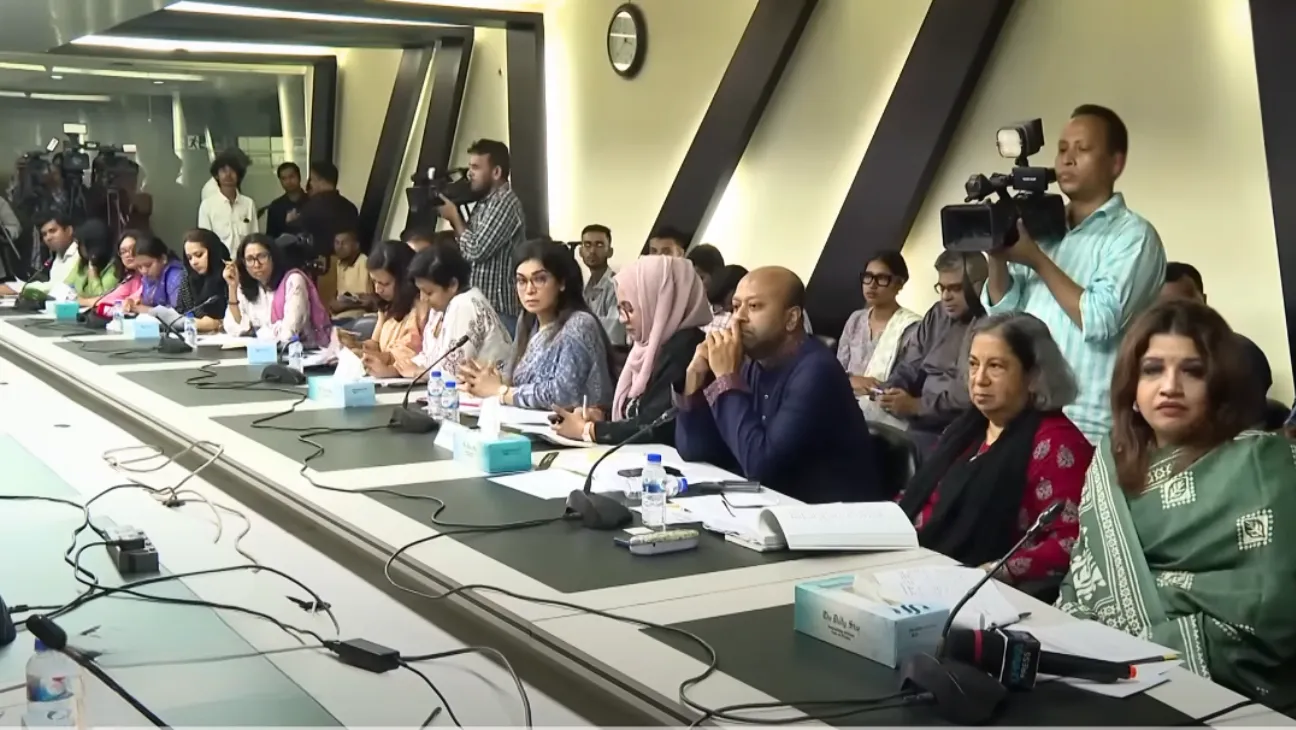A growing number of civic groups are urging Bangladesh’s main political parties to nominate more women — aiming for at least 25 percent of all seats in the upcoming national election.
The push gained momentum at a recent discussion hosted by the Citizens’ Coalition, where political leaders, activists, and gender advocates came together to talk strategy. The conversation focused on real steps to boost women’s presence in politics — not just through reserved seats, but in open contests as well.
Organizers outlined a four-point proposal. One of the key points: women must be allowed to compete in at least 100 seats through direct vote.
“We’re not asking for token presence. We want a real shift,” said Dr. Taslim, senior joint secretary of the Jatiya Nagorik Party. “Our target is that a minimum of 25 percent of MPs be women, elected through direct contests, not just selected through backdoor processes.”
Broad support, but practical challenges
Many participants agreed. Some went further, suggesting that even reserved seats for women in Parliament should be filled through popular vote, not party nomination.
Opposition party BNP also expressed support. Party leader Shama Obaid said her group agrees that female participation must expand, particularly at the grassroots.
“Yes, BNP supports the idea,” she said. “But it’s not just about setting numbers. Parties must be held accountable. How will they do it? What’s the deadline? That process needs clarity.”
Even so, not everyone is convinced the shift can happen anytime soon.
Also Read: Bangladesh’s Next National Election Likely in Early 2026, Says EC
Badiul Alam Majumdar — secretary of Sushashoner Jonno Nagorik (Shujan) and a long-time voice in election reform — questioned whether such a move is realistic in the current political climate.
“In many places, current male MPs actively block women from running,” he said. “If you suddenly introduce dual representation in each seat, I doubt it will work. But that doesn’t mean we stop pushing for direct elections. Reserved or not, the vote must come from the people.”
Deeper issues beyond numbers
Speakers acknowledged that institutional barriers often prevent women from contesting elections. Financing, nomination bias, and party culture were cited as major hurdles.
They called on political parties to actively support and prepare female candidates—not just during election season but year-round.
Without that support, they warned, any quota risks becoming symbolic.
“We need structural change,” said one development agency representative. “It’s not just about how many women get in. It’s about how they get there, what role they play, and whether they can stay.”
What’s next
Momentum is building to bring more women into Parliament, right as preparations for the next national election — expected in early 2026 — start to gather speed.
Leaders from the Citizens’ Coalition say they’re not backing down. They plan to keep talking with political parties, pressing for clear commitments instead of empty promises.
Some party officials say there’s movement in the right direction — though how far that goes remains to be seen. Others think the pace is too slow.
But across the board, there seems to be a shared understanding:
More women need to be in Parliament.
And this time, they should get there with your vote.









